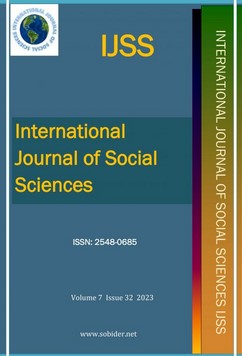Eğitim Kurumu Yöneticileri Açısından Motivasyonun İhtiyaçlar Hiyerarşisi Bağlamında İncelenmesi
Examination of Motivation from the Point of View of Educational Institution Managers in the Context of the Hierarchy of Needs
Author(s): Yavuz Arslan, Fatma Yıldırım, Okan Kobal, Selami Banzaroğlu, Merve DelibaşSubject(s): Management and complex organizations, Human Resources in Economy, Sociology of Education, Pedagogy
Published by: SD Yayınevi
Keywords: Educational Institution; Educational Manager; Motivation; Needs Hierarchy;
Summary/Abstract: Educating people and ensuring the development of people are within the scope of the duties and activities of educational institutions. It will be possible for these institutions to work well and to continue their activities if the person or persons working in these institutions do the work they do knowingly and willingly. Especially in the case of educational institutions, this willingness, which is desired to appear, will be with the commitment of the person to the institution. Along with their commitment to their institutions, educators can also improve their commitment to the teaching job. In this commitment, it manifests itself in three dimensions. These are listed as the teacher's willingness and belief in making a difference, believing that he can teach his students something, and making efforts to teach. The higher the organizational commitment, the more employees will take care of their institutions, students and the field they work in. With this situation, the pleasure, motivation and satisfaction that employees will receive from the work they are working will be high Jun. Along with this, the quality of education will also increase, and the student's success will increase. Keeping the level of commitment of the educator high is an important criterion. On the contrary, the success of a student influenced by an educator with a low level of commitment will be low. It will be positive for people in managerial positions to take measures that will increase their loyalty and motivation towards their employees. The new generation that grows up with the influence of the quality education provided in the institution will be more successful. The outputs planned to be achieved in educational organizations are made by human power, not by machine. If managers in organizations do not give the necessary importance and support to employees, the efficiency and quality in the working environment decrease. Employees should be enthusiastic and excited in order to increase the quality and efficiency in institutions. Employees who are tired and angry with life will not be able to be productive towards the institution. It is known that managers who are more insensitive and often inadequate have difficulty understanding that their employees may also have some individual needs. The communication that will be established between the teacher and the manager in schools with a mutually healthy infrastructure will help the school administrator to communicate more easily with the teachers and manage the school Decently.
Journal: Uluslararası Sosyal Bilimler Dergisi
- Issue Year: 7/2023
- Issue No: 31
- Page Range: 327-338
- Page Count: 12
- Language: Turkish

